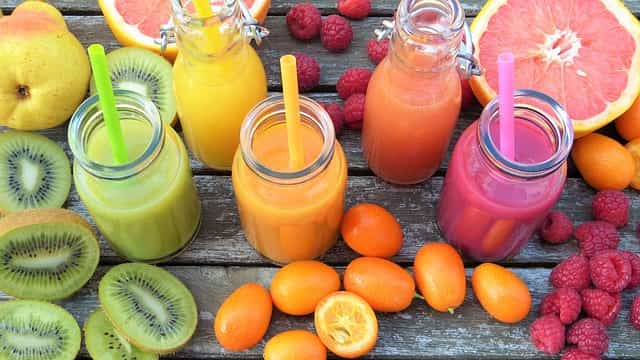Beating the Heat: 6 Optimal Choices of Diet in Hot and Humid Weather Conditions

The optimal diet in hot and humid weather conditions becomes inevitable as the temperatures rise in summers and the humidity levels also ascend. Owing to which, our bodies obligatorily work in due course to sustain a healthy internal balance.
The diet in hot and humid weather conditions require specific nutritional needs and dietary requirements which involve a more considerate and strategic approach to fueling our bodies and to avoid heat strokes against heat waves.
Appropriate nutrition plays a crucial role in devising a feasible diet in hot and humid weather conditions in order to adapt to the burden of hot and humid environments.
The diet in hot and humid weather conditions allows us to remain hydrated, regulate body temperature and also sustain energy levels all the way through the whole day.
Through effective diet in hot and humid weather conditions we can make knowledgeable dietary choice. The healthy diet in hot and humid weather conditions can not only improve our physical relieve but also maintain our overall health and wellbeing.

In this detailed article, we’ll discover the key fundamental principles of an optimal diet in hot and humid weather conditions. It will enrich the knowledge and suitable apparatus to nurture body and prosper even in the countenance of severe environmental challenges.
6 Key Fundamental Principles of Best Diet in Hot and Humid Weather Conditions
The diet in hot and humid weather conditions plays a pivotal role in maintaining a good healthy diet against extreme weather conditions. There are few fundamental principles or effective dietary routines which enhance human health and overall wellbeing.
Hydration is the Underpinning of Diet in Hot and Humid Weather Conditions
It is healthy to stay hydrated in hot weather conditions, as our bodies fluid go down significantly through sweating during times of high heat and humidity.
Proper hydration as a prime option of diet in hot and humid weather conditions is essential to maintain a number of fundamental bodily functions which includes:
- Regulation of body temperatures
- It is helpful in proper transportation of certain nutrients
- Support certain body organ function
- Assistance in digestion
- Promotion of cognitive function
There are certain daily recommendations for the daily fluid intake which is around 11.5 cups (2.7 liters) for women and 15.5 cups (3.7 liters) for men.
However, hydration as a prime diet in hot and humid weather conditions becomes really important with a rise in temperatures because body lose 2-4 liters of fluid in every hour.
In order to ensure sufficient hydration one must focus on drinking water throughout the day as a diet in hot and humid weather conditions and also consider incorporate electrolytic rich beverages, such as coconut water, herbal teas, and diluted fruit juices.

It is highly recommended to avoid caffeinated, sugary or alcoholic drinks, as they can actually contribute to dehydration and are considers as poor diet in hot and humid weather conditions.
Furthermore, consuming water rich foods into your diet in hot and humid weather conditions such as oranges, coconut, watermelon, cucumber, and tomatoes, can help in meeting hydration requirements and also provide precious nutrients.
Macronutrients are Responsible in Balancing Certain Energy Requirements
In hot and humid weather our bodies necessitate a fragile balance of macronutrients (carbohydrates, proteins, and fats) to maintain higher energy levels as a solid support for vital bodily functions. Macronutrients and their ingredients are as follows:
Carbohydrates
Carbohydrates should be the basis of diet in hot and humid weather conditions which provide a quick and needed energy to perform certain bodily functions.
It is recommended to mainly rely on complex carbohydrates like whole grains, fruits, and vegetables which are slow in digestion and are helpful in maintaining a stable blood sugar level.
It is further suggested to avoid simple, refined carbohydrates like white bread, pastries, and sugary snacks, as they can lead towards quick spike and crashes in energy which could further exacerbate the exhaustion linked with hot and humid conditions.
Proteins
Protein is vital to maintain proper muscle mass which supports tissues repair and help in regulating body temperatures.
However, it’s pertinent to choose leaner protein source like heavy, protein-rich meals can be more taxing to digest in hot weather conditions which potentially lead towards feelings of lethargy and uneasiness.
Opt for lean meats, poultry, fish, eggs, legumes, and plant-based protein sources as a diet in hot and humid weather conditions like tofu and tempeh.
Fats
Fats are critical for general health and wellbeing; they can be more disturbing to digest as a diet in hot and humid conditions.
It is suggested to prioritize healthier and unsaturated fats like those found in avocados, nuts, seeds, and olive oil, which can give continuous energy without over-burdening the digestive system.
Furthermore, it is recommended to limit the intake of weighty, saturated fats which add to feelings of lethargy and uneasiness.
Significance of Micronutrients as a Diet in Hot and Humid Weather Conditions
Apart from macronutrient balance a proper diet in hot and humid weather conditions should also be emphasized on providing a wide array of micronutrients to bear overall health and flexibility.

Electrolytes
Certain electrolytes like sodium, potassium, and magnesium play a vital role in maintaining fluid balance, nerve function, and muscle contractions. During the times of intense heat and sweating, it’s necessary to refill these indispensable minerals to stop dehydration and muscles cramps.
It is highly recommended to consume electrolytic rich foods like bananas, leafy greens, avocados, and nuts and also focus on supplementing diet with electrolyte enhanced beverages if required.
Antioxidants
Antioxidants are very important for combating against enlarged oxidative stress and inflammation that can happen from prolonged exposure to hot and humid environments.
Fruits and vegetables rich in vitamins C, E, and carotenoids as well as polyphenol-containing foods may facilitate in neutralizing free radicals and support overall cellular health.
Berries, citrus fruits like orange and lemons, leafy greens, bell peppers, and tomatoes are rich sources of antioxidants.
Cooling Super foods
Certain plant-based foods have natural cooling properties which can help in body temperature regulations and also provide uplifting aid in hot weather.
The inclusion of below mentioned “cooling super-foods” into your diet in hot and humid weather conditions can be particularly beneficial:
Watermelon – High in water content and natural electrolytes
Cucumbers – Contain high water content and can have a mild diuretic effect
Mint also responsible for providing cooling sensations
Fennel – Has a slightly sweet, licorice-like flavor that can have a cooling effect
Spicy peppers – Can stimulate sweating and promote circulation
Meal Planning and Preparation: Timing and Portion Control
In addition to the explicit nutrient considerations, the timing and portion sizes of meals can also take part in supporting our body’s requirements throughout the hot and humid conditions.

Smaller and More Frequent Meals
Consuming smaller, more frequent meals throughout the day can be more beneficial than larger, heavy meals.
Smaller portions are more convenient for the body to digest, which can aid in preventing thoughts of lethargy and discomfort linked with the heat.
More Lighter and Easier to Digest Foods
It is worth focusing to incorporate lighter, easier-to-digest foods, such as fruits, vegetables, lean proteins, and whole grains, which can be more readily engrossed by the body without placing a considerable load on the digestive system.
It is suggested to avoid heavy, rich, or fatty foods, as these can be more challenging to break down, potentially lead towards the feelings of lethargy and discomfort.
Eat Earlier in the Day
Try to eat the bulk of your daily caloric intake earlier in the day, when the ambient temperature is typically lower.
This can assist your body in better utilizing the energy from meals and also avoid the slowness that can accompany with eating large, heavy meals during the hottest part of the day.
Meal Preparation Strategies
Employing detailed meal preparation techniques can also improve the effectiveness of diet in hot and humid weather conditions. Some significantly effective strategies to consider may include:
Grilling, roasting, or sautéing foods instead of boiling or frying, which can help reduce the heat and humidity in your living space.
1. Utilizing raw, uncooked dishes, such as salads, crudités, and fruit-based meals, to reduce the want for heat generating cooking methods.
2. Meal prepping ahead of time to have readily available, nutrient-dense options on hand, reducing the need for last-minute, potentially less healthy choices.
3. Utilizing kitchen appliances that generate less heat, such as instant pots, air fryers, or slow cookers, to prepare meals without adding to the ambient temperature.
Through thoughtful planning and preparation of meals one can make sure that hot weather diet not only nourishes your body but also provide a stimulating, reassuring experience during the testing summer months.
Hydrate Throughout the Day
Remember to stay hydrated by drinking water or other healthy beverages consistently throughout the day, rather than relying on large, infrequent water intake. This can help in maintaining proper water balance and support your body’s temperature regulation.
In order to further optimize diet in hot and humid weather conditions , consider consuming seasonal and locally produced food sources which may be additional nutrient-dense and better suitable to your regional climate.
This can lend a hand in taking advantage of the natural cooling properties of certain fruits and vegetables that flourish in hot conditions.
Conclusion
Navigating through a healthy diet in hot and humid weather conditions require a planned and flexible approach which takes into account the exceptional physiological demands placed on the body.
By prioritizing hydration, balancing macronutrients, and incorporating nutrient-dense, cooling super-foods, one can create a diet that not only chains your body’s temperature regulation but also provides the continued energy and sustenance needed to thrive in even the most extreme environmental conditions.
It is pertinent to note that the key to a successful diet in hot and humid weather conditions is flexibility, experimentation, and a deep understanding of body’s individual requirements.
Through properly tuning in to the signal our body sends and through making certain adjustments one can unchain a world of comfort, vitality, and overall wellbeing.
FAQs
What is the best diet in hot and humid weather conditions?
coconut, watermelon, cucumber, and tomatoes
What could happen in times of hot and humid weather conditions?
Heat stroke
How to avoid malnutrition and dehydration in hot weather conditions?
Through proper hydration and intake of seasonal fruits and vegetables







Much needed info 👍🏻